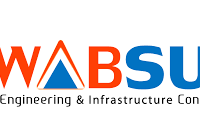Comprehensive Evaluation Guide for Selecting a Vendor in the Engineering and Construction Sector
Introduction
When selecting a vendor for services such as engineering, construction, infrastructure development, real estate development, and environmental engineering, it's essential to undertake a thorough evaluation process. This guide aims to provide a structured approach for customers to make informed decisions when evaluating vendors like Wabsus Infratech. This comprehensive guide outlines key points across various criteria to consider during the vendor selection process, ensuring the chosen vendor aligns with the customer's project goals and expectations.
Vendor Reputation and Experience
Company Background and History
Understanding the vendor's background is crucial. Research the history of Wabsus Infratech, including its establishment year, milestones, and growth trajectory. Evaluate how long they have been in the industry and their track record with similar projects.
Industry Experience
Evaluate the vendor’s experience in the specific sector you are interested in. For example, if you are looking for infrastructure development services, ensure that Wabsus Infratech has a strong portfolio and proven expertise in that area. Look for case studies and project portfolios.
Client Testimonials and References
Gather feedback from previous clients. Client testimonials and references provide insight into the vendor's reliability, quality of work, and customer satisfaction. Contact past clients directly if possible, to get honest feedback on their experiences.
Technical Expertise and Capabilities
Engineering and Construction Services
Examine the vendor’s technical expertise in providing comprehensive engineering and construction services. Assess their proficiency in civil engineering, structural engineering, and project management. Ensure they can deliver end-to-end solutions from conceptual design to project completion.
Infrastructure Development
Evaluate the vendor’s capabilities in infrastructure development. Look into their past projects involving roads, bridges, highways, and urban development. Ensure they adhere to safety standards and employ robust engineering practices.
Real Estate Development
Assess the vendor’s expertise in real estate development. Review their portfolio of residential complexes, commercial buildings, and mixed-use developments. Check for innovative design, quality construction, and modern amenities in their projects.
Environmental Engineering
Consider the vendor’s commitment to sustainability and their expertise in environmental engineering. Evaluate their services in waste management, water treatment, and renewable energy projects. Ensure they have a focus on minimizing environmental impact and promoting sustainable development.
Financial Stability and Pricing
Financial Health
Analyze the financial stability of the vendor. Review their financial statements, credit ratings, and business performance. A financially stable vendor is more likely to complete projects successfully and handle any unexpected issues that arise.
Cost Estimates and Pricing Models
Request detailed cost estimates and understand the vendor’s pricing models. Compare these with other vendors to ensure competitive pricing. Ensure transparency in their pricing structure to avoid hidden costs.
Payment Terms and Conditions
Review the vendor’s payment terms and conditions. Ensure they are flexible and align with your financial planning. Look for vendors offering favorable terms that can accommodate your budget and cash flow requirements.
Project Management and Delivery
Project Planning and Execution
Evaluate the vendor’s project planning and execution capabilities. Assess their approach to project management, including timelines, milestones, and deliverables. Ensure they have a structured process for tracking progress and addressing issues.
Quality Control and Assurance
Examine the vendor’s quality control and assurance processes. Ensure they adhere to industry standards and employ rigorous quality checks throughout the project lifecycle. Quality assurance is crucial for the long-term success of the project.
Timely Delivery
Assess the vendor’s track record for timely project delivery. Review past projects to see if they met deadlines and managed project timelines effectively. Delays can lead to increased costs and disrupt project plans.
Technological Innovation and Adaptability
Adoption of Latest Technologies
Evaluate the vendor’s adoption of the latest technologies in their services. Ensure they utilize modern tools and techniques in engineering, construction, and environmental engineering. Technological innovation can enhance project efficiency and quality.
Adaptability to New Trends
Consider the vendor’s adaptability to new industry trends and standards. Ensure they are proactive in incorporating sustainable practices, new materials, and innovative solutions into their projects. Adaptability is key to staying relevant in the evolving market.
Research and Development
Assess the vendor’s commitment to research and development. Ensure they invest in R&D to continuously improve their services and solutions. A vendor focused on R&D is likely to offer cutting-edge solutions that meet your project needs.
Customer Service and Support
Communication and Transparency
Evaluate the vendor’s communication practices. Ensure they maintain transparency and provide regular updates throughout the project. Effective communication is essential for resolving issues and ensuring project alignment.
After-Sales Support
Consider the vendor’s after-sales support and services. Ensure they offer comprehensive support and maintenance services after project completion. After-sales support is crucial for addressing any post-project issues and ensuring long-term success.
Customer Relationship Management
Assess the vendor’s approach to customer relationship management. Ensure they prioritize building strong relationships and maintaining high customer satisfaction levels. A vendor committed to CRM is likely to offer a better customer experience.
Regulatory Compliance and Safety Standards
Adherence to Regulations
Ensure the vendor complies with all relevant industry regulations and standards. Non-compliance can lead to legal issues and project delays. Review their track record for regulatory adherence.
Safety Practices
Evaluate the vendor’s safety practices and protocols. Ensure they prioritize worker safety and adhere to safety standards in their projects. Safety is paramount in engineering and construction projects.
Environmental Compliance
Assess the vendor’s compliance with environmental regulations. Ensure they implement sustainable practices and minimize environmental impact. Environmental compliance is crucial for sustainable development.
Conclusion
Selecting the right vendor for engineering, construction, infrastructure development, real estate development, and environmental engineering services requires a thorough evaluation process. By considering factors such as reputation, technical expertise, financial stability, project management capabilities, technological innovation, customer service, and regulatory compliance, customers can make informed decisions and choose a vendor that aligns with their project goals and expectations. Wabsus Infratech, with its diverse range of services and commitment to quality, sustainability, and customer satisfaction, presents a strong candidate for consideration. Use this guide to navigate the evaluation process and ensure a successful partnership with your chosen vendor.


























